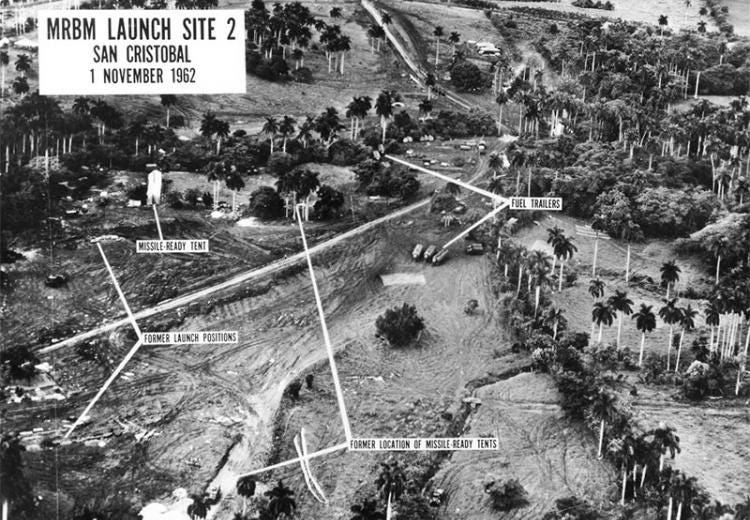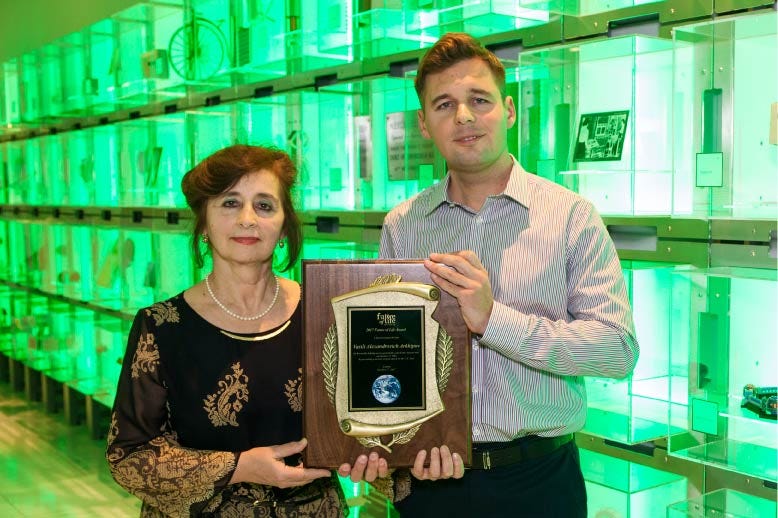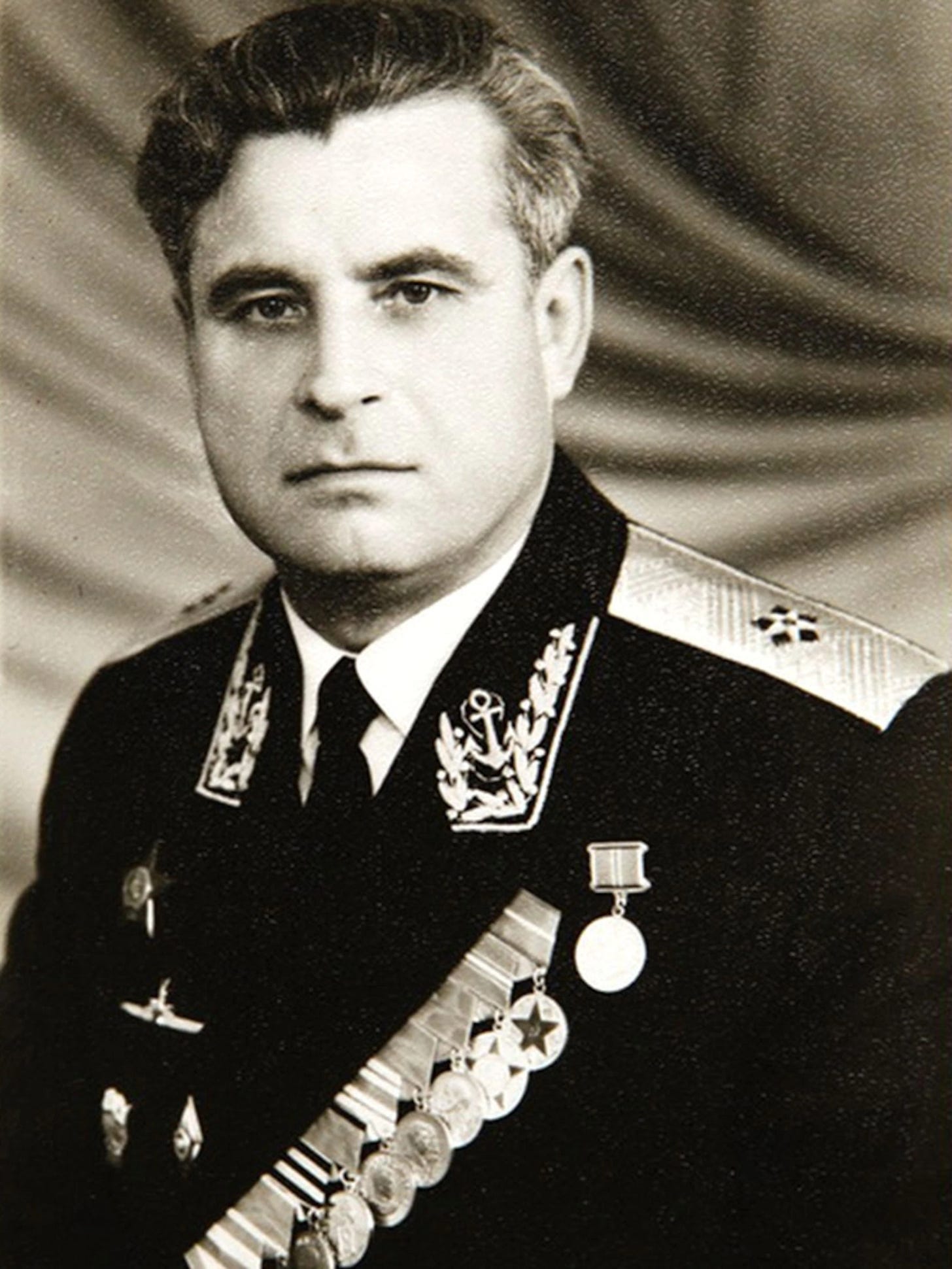Vasili Arkhipov: an opera for a hero
A fitting homage to the first Soviet officer who saved the world.
Picture, if you will, a submarine deep in the waters of the Caribbean, with an exceedingly high temperature, less and less oxygen, no communication and a nuclear torpedo ready to be armed and launched. It had to dive after being harassed, and the enemy is dropping depth charges. It’s not clear if it’s an attack or just a signal to resurface.
The torpedo has an explosive power of 10 kilotons (roughly two thirds of the Hiroshima bomb), and can only be launched with the approval of three officers. Two of them say yes. The fate of humankind hangs on one man’s decision. And the man says no.
His name was Vasili Arkhipov.
Communication breakdown
The drama unfolded on October 27 1962, at the height of the Cuban missile crisis. After discovering that Soviet nuclear missiles were being installed in Cuba, American President John Kennedy ordered a naval blockade of the island. Four Soviet diesel-powered submarines went all the way from the Arctic to the Caribbean, and stopped before reaching the blockade line. One of the subs was the B-59.
Diesel-electric vessels have to surface to recharge their batteries, but with the Americans hunting for subs, this became impractical. Add to that the fact that the submarines were not designed for warm waters, and with the air conditioning broken, the temperature inside the B-59 could reach more than 70 degrees Celsius in some areas. Communications between the submarine and Moscow had broken down and, worse still, they had been found by the Americans, but didn’t know it.
Reckless interception
They eventually had to surface, and an unexpected meeting with eleven American destroyers and an aircraft carrier ensued. As Arkhipov later recalled, there were
overflights by planes just 20-30 meters above the submarine’s conning tower, use of powerful searchlights, fire from automatic cannons (over 300 shells), dropping depth charges, cutting in front of the submarine by destroyers at a dangerously [small] distance, targeting guns at the submarine, yelling from loudspeakers to stop engines.
These statements are included in recently translated documents showing that the Americans were extremely reckless. And they were even more so after the B-59 commander, Valentin Savitsky, decided to dive deep: some of the practice depth charges, intended not to attack but to signal that the sub should resurface, were “enhanced” with grenades that would explode close to the vessel.
With the stakes higher than ever, and sheer exhaustion taking over, commander Savitsky broke down:
We’re gonna blast them now! We will die, but we will sink them all — we will not become the shame of the fleet.
Grace under pressure
He then decided to launch the “special weapon”, as the torpedo was called. But this should only happen with three officers’ approval. Arkhipov, who was the fleet commander at age 34, would have the last word. Convinced, rightly, that the depth charges were just signals to resurface, he kept his cool and ended up preventing what might unleash a full-scale nuclear war.
Arkhipov died in 1998 in relative anonymity. It was only in 2002 that the shocking events were made public, and his reputation as a hero was established. In 2012 he was the subject of a PBS documentary, The Man Who Saved the World. Five years later, he was posthumously awarded the first Future of Life Award, offered by the non-profit Future of Life Institute.
Soviet Navy officer Ryurik Ketov talks about Arkhipov in the PBS documentary The Man who Saved the World
Claustrophobic tension
Now he is the theme of an opera, Arkhipov, by Peter Knell and Stephanie Fleischmann, that premiered on October 21 last year. Most of the story (around two hours) takes place inside the submarine, with the music exploring the growing tension, the sailors’ inner lives, and the contrast between the wide ocean and the unbearable “huis clos” that the submarine turns into.
Knell decided to compose the opera after reading a New Yorker article about the occasions when nuclear war almost started by mistake. In this case, misunderstandings and lack of communication could have catastrophic consequences. He used Soviet and American documents, as well as the testimony of Olga Arkhipov (Vasili’s wife) as resources, and invited award-winning librettist Fleischmann to collaborate.
Twice a hero
Incredible as it may seem, this was not the first time Arkhipov was a hero. One year before the incident near Cuba, he was the deputy commander of the new nuclear submarine K-19 and had to deal with a massive leak from the reactor. Arkhipov was part of the team that exposed themselves to radiation trying to control the leak.
The operation was successful but at the cost of 22 sailors’ lives in the following two years. Arkhipov would go on living for much longer, but the fact that he died from kidney cancer led many to suggest that this was also caused by the exposure.
Saving the world
What would happen if the B-59 launched its torpedo? The consensus is that, in all likelihood, it would start World War 3. President Kennedy was already under great pressure to attack Cuba. If a nuclear weapon vaporized American ships and thousands of servicemen, so close to the United States, an answer in kind could be expected.
It is estimated that in 1962 the United States had more than 27,000 nuclear warheads, against less than 4,000 in the USSR. With almost seven times the number of weapons, it seems the Americans might have a big advantage. Right?
Not by a long shot.
Unbeknownst to American officials, 80 nuclear missiles were already installed in Cuba and ready to be launched. It is highly plausible that, if the island were attacked, many American cities would be destroyed.
Not unsung anymore
Since most of Europe would also cease to exist, a large part of the Northern Hemisphere would become a radioactive wasteland. Humans in the rest of the world might be finished off by nuclear winter (if the models are correct).
It looks fair to say, then, that Vasili Arkhipov, who is now literally a sung hero, may be the most important person in history — at least until 1983, when that honour would be shared with yet another Soviet officer, Stanislav Petrov (his story will be the subject of a future post). Come to think of it, we are alive today because of two Soviets. спасибо, товарищи!
Watch a brief clip of a rehearsal of the opera.
Vasili Arkhipov’s recollections of the incident.












Luca, thanks much for your blog, I'm happy to have discovered it. We're very much on the same page regarding nuclear weapons. It's alway fun to meet someone willing to stand outside the nuclear weapons denial disease that so afflicts our culture. I'm making my way through your articles, looking great so far. Keep it coming!
What a story, err, History! And I had never heard ou read about it. Thank you.